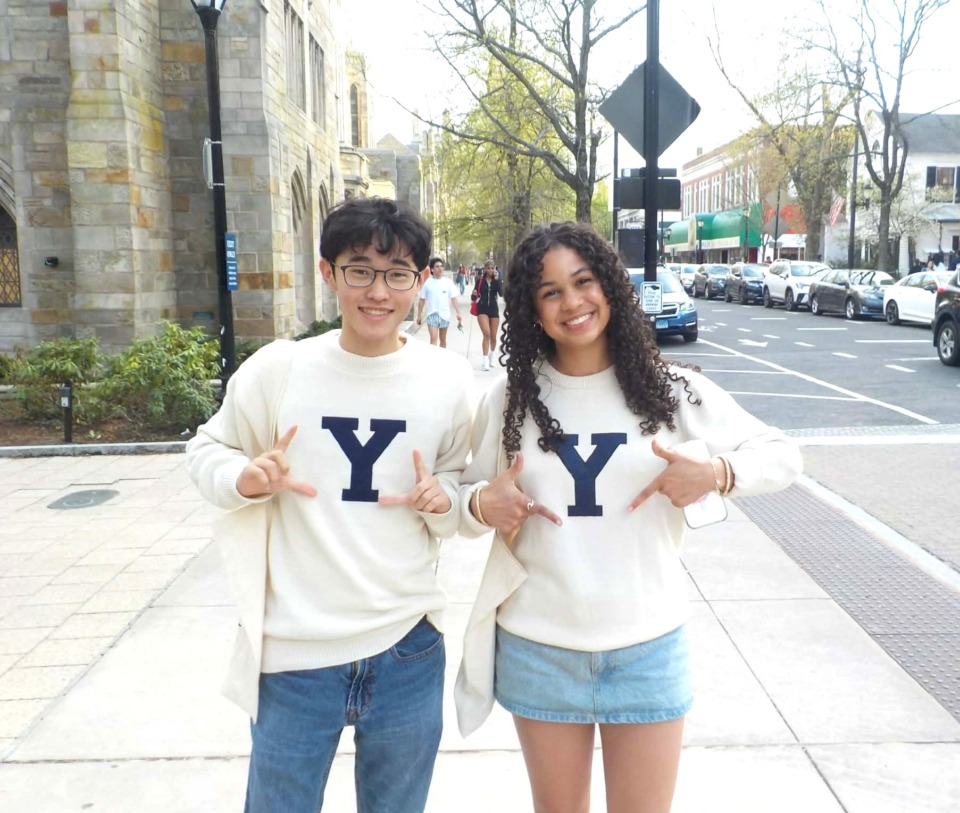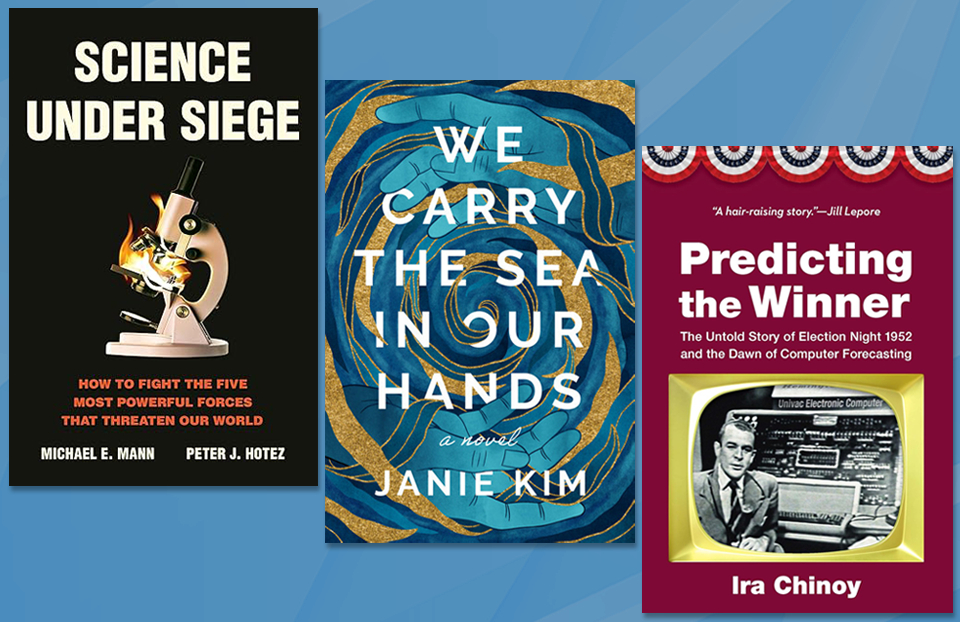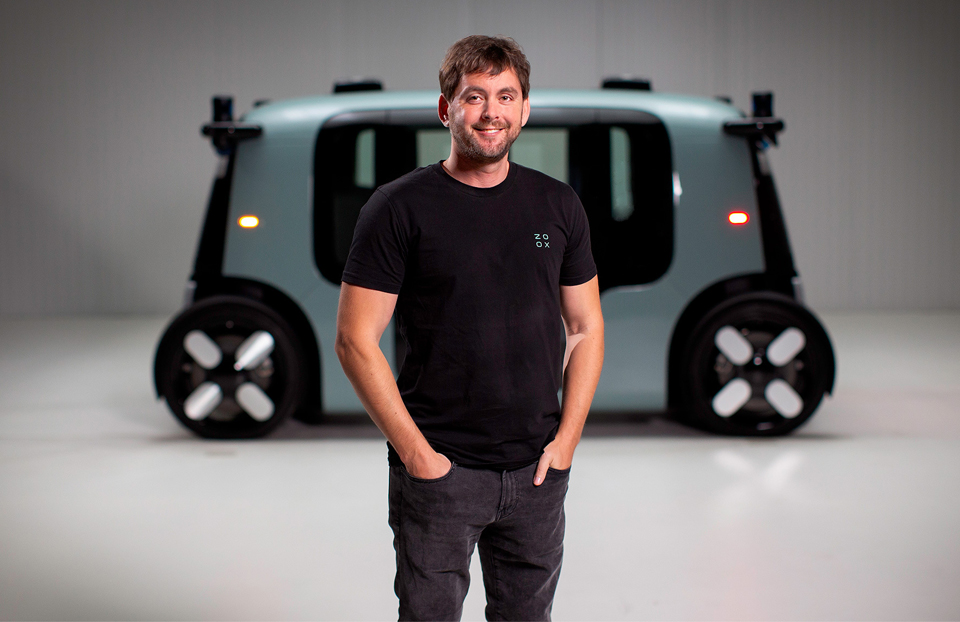Intel ISEF alumni panel digs deep into what makes a successful entrepreneur
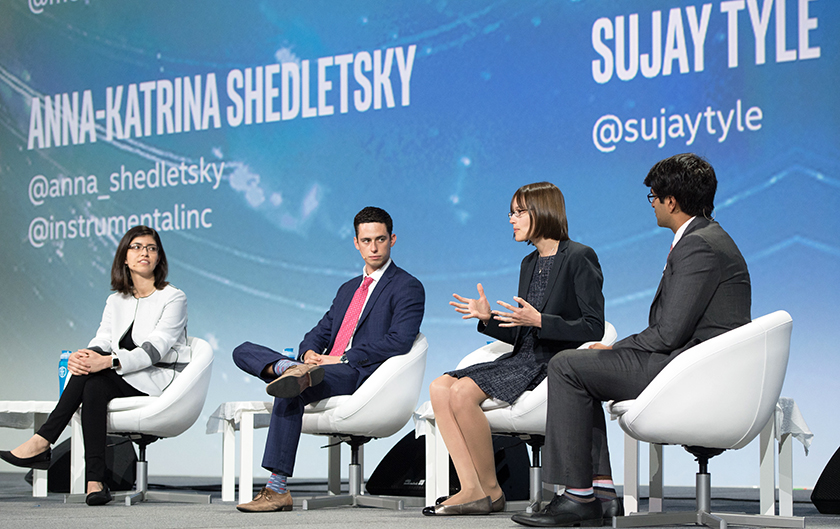
“Innovation doesn’t stop at Intel ISEF. Our alumni are launching companies and disrupting industries. They are helping sick patients live longer, healthier lives. They are working to save the planet,” said Maya Ajmera, President & CEO of the Society for Science & the Public and Publisher of Science News.
At the Innovation and Entrepreneurship Panel on May 15, several Society alumni offered advice on creating their own startups to the Intel ISEF 2018 finalists. The panelists included: Melis Anahtar (Intel ISEF 2004), Co-founder, Day Zero Diagnostics, Inc.; Felipe Gomez Del Campo (Intel ISEF 2012), Founder & CEO, FGC Plasma Solutions LLC; Anna-Katrina Shedletsky (Intel ISEF 2003-2004), Founder & CEO, Instrumental, Inc.; and Sujay Tyle (Intel ISEF 2007-2009), Co-founder & CEO, Frontier Car Group. The panel was moderated by the Society’s President & CEO and Publisher of Science News Maya Ajmera.
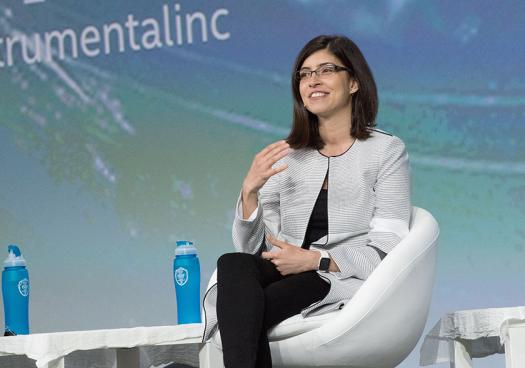
At her company, Melis uses machine learning to skip the long culturing process involved in identifying bacteria. “Having a startup is very exciting, but also very challenging,” she said. “You’re probably attacking a problem no one else has been able to solve.”
Global health challenges are emerging all the time. “There’s another Ebola outbreak right now in the Democratic Republic of Congo,” Melis said. “When it comes to infections and outbreaks, machine learning plays an important role. Machines can identify patterns and hopefully help us stop or contain the outbreaks before they begin.”
My risk tolerance is higher now than it will be later.
“Starting your own company is very doable,” Melis assured the finalists. “Your science is valuable. It’s making an impact.”
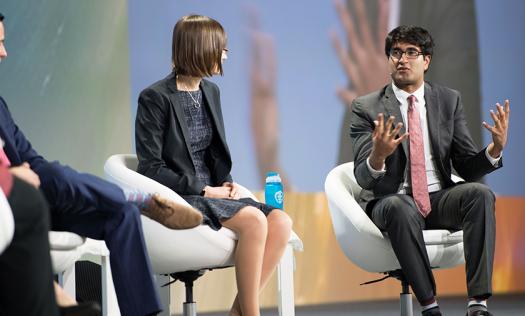
Sujay agreed, adding, “I think we’re at a time now where investors are starting to respect younger entrepreneurs and taking us more seriously.”
“My risk tolerance is higher now than it will be later,” Felipe explained about starting a company so young. “You have to want to succeed and be totally OK with failure.” Felipe is working to make vehicle and airplane fuel more efficient, which includes improving engines.
Meanwhile, Anna’s software company, Instrumental, Inc., helps hardware companies find and fix issues in their manufacturing lines. She ultimately wants to change the way products are developed, to make the process more efficient and make products cheaper. For finalists looking to scale their projects to a marketable product, she assured them that the approach of breaking down a large problem is similar for both science research projects and companies.
We’re at a time now where investors are starting to respect younger entrepreneurs and taking us more seriously.
The communication skills Felipe gained through science competitions have proven particularly helpful to him when building his company. He says that raising money for a company’s products and services requires good storytelling skills. “At Intel ISEF, I learned that you can do great science, but unless you communicate that science well, it doesn’t matter,” he explained.
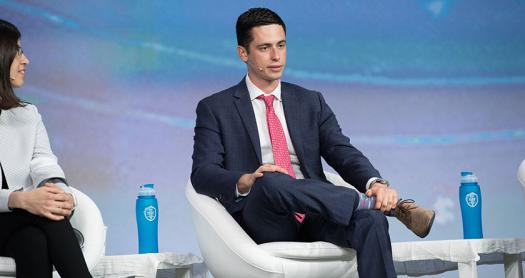
“You need to be able to explain your project in 30 seconds to a judge. And as an entrepreneur, I need to be able to explain in 30 seconds what I’m doing to an investor,” Felipe said.
Sujay, founder of Frontier Car Group, remains persistent in the face of every challenge. Whether it was emailing prospective mentors over and over to find one who would take him, to finding a lab with research interests that aligned with his own, or applying for jobs, Sujay did not stop until he fulfilled early research goals. “I just stayed persistent, and now as an entrepreneur I cold call or cold email investors. That cycle of being fearless started at Intel ISEF,” he said.
You can do great science, but unless you communicate that science it doesn’t matter.
When these alumni competed at Intel ISEF, things just clicked for them. Intel ISEF helped Melis understand that “the nerds” are the people who understand her.
“I met people who I knew were going to change the world,” Felipe said. “It helped me to want to keep working on my research.”
The panel often returned to the importance of mentors. “Finding good mentors, people who have done what you are trying to do, is key,” Felipe explained.
Similarly, Anna suggested that the finalists connect with other entrepreneurs. “When I was working at Apple, I hosted a founder’s spaghetti dinner at my house and built these relationships over time,” she said. “A lot of mentors are eager to reach out and help the next generation.”
